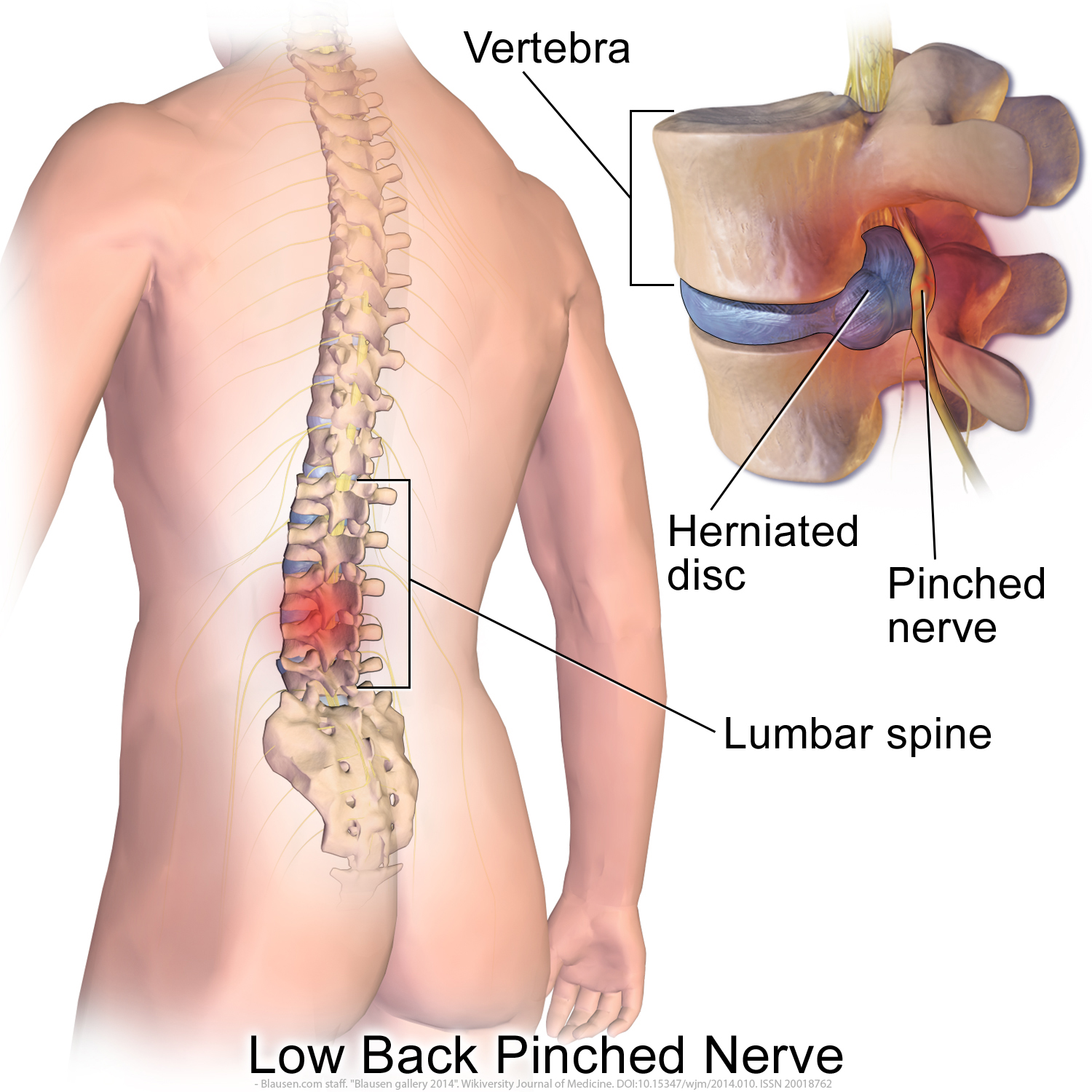 Original uploader was Mjorter at nl.wikipedia - Originally from nl.wikipedia;
Original uploader was Mjorter at nl.wikipedia - Originally from nl.wikipedia;
What is a Disc Herniation?
A disc herniation or rupture occurs when there is a problem with one of the rubbery cushions between the vertebrae in your spine, called discs. The spinal disc serves the purpose of padding your spine and preventing bone on bone contact. When you damage this area, the soft material can begin pushed outside of it's exterior, bulging outside of it's normal position. This can cause both an inflammatory reaction and nerve compression which irritates the nerve. The irritated nerve can then cause numbness, weakness, and pain which radiates into the arms and legs.
Signs and Symptoms of a Herniated Disc
When the nerves in your spine are irritated by a herniated disc, it may cause numbness in an arm or leg. Often though, if the bulge or rupture is not irritating a nerve, it can go unnoticed for a long period of time. Pain is often not felt directly around the area of the ruptured disc, so looking for the origin of the issue is important when trying to diagnose your pain. The disc affected can be seen through an MRI or CT scan.
If you have fallen or had any significant vertical impact on your spine, especially in the seated position, this force can push your disc material out of place. So if you notice pains after an event like this, you could very well be dealing with a herniated disc and should seek medical attention.
Surgical Treatment Options
Disc Herniation can be treated with the following procedures:
- Discectomy